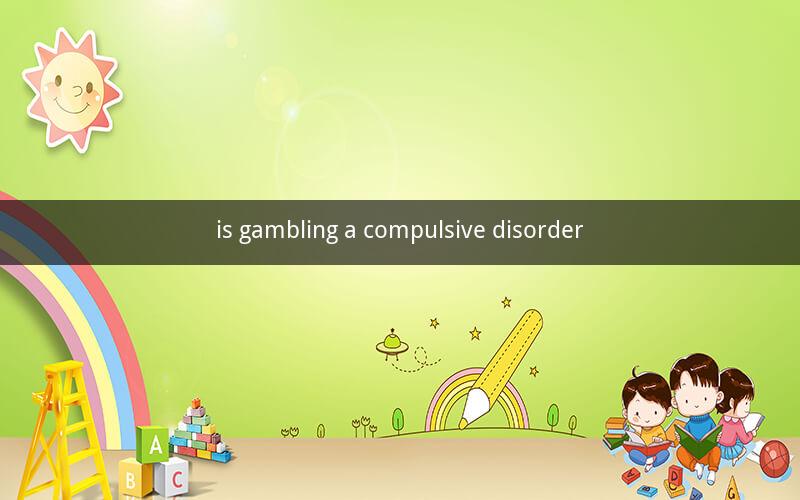
Table of Contents
1. Introduction to Compulsive Disorders
2. Understanding Gambling
3. The Link Between Gambling and Compulsive Behavior
4. Signs and Symptoms of Gambling Disorder
5. Causes and Risk Factors of Gambling Disorder
6. The Impact of Gambling Disorder on Individuals and Society
7. Diagnosis and Treatment of Gambling Disorder
8. Prevention and Support for Individuals with Gambling Disorder
9. Conclusion
1. Introduction to Compulsive Disorders
Compulsive disorders refer to a group of mental health conditions characterized by repetitive, involuntary behaviors that individuals are unable to control. These disorders often lead to significant distress and impairment in various aspects of life, including work, relationships, and financial stability. One of the most prevalent compulsive disorders is gambling disorder, which has garnered considerable attention in recent years.
2. Understanding Gambling
Gambling is the act of betting on an uncertain event with the intention of winning something of value. It can take various forms, such as playing lottery games, betting on sports, or engaging in casino gambling. While many individuals enjoy gambling as a form of entertainment, it is crucial to recognize the potential for it to become a harmful and addictive behavior.
3. The Link Between Gambling and Compulsive Behavior
The link between gambling and compulsive behavior is well-documented. When individuals engage in gambling, the brain releases dopamine, a neurotransmitter associated with pleasure and reward. This release of dopamine can create a sense of euphoria and reinforce the desire to continue gambling. Over time, this can lead to the development of a gambling disorder, where individuals feel compelled to gamble despite the negative consequences.
4. Signs and Symptoms of Gambling Disorder
Gambling disorder is characterized by several signs and symptoms. These include:
- Persistent and repeated gambling despite negative consequences, such as financial, relationship, or health problems.
- Needing to gamble with increasing amounts of money to achieve the desired excitement.
- Feeling restless or irritable when attempting to stop gambling.
- Continual preoccupation with gambling, such as planning the next gambling session or reliving past gambling experiences.
- Returning to gambling after experiencing unsuccessful efforts to stop.
5. Causes and Risk Factors of Gambling Disorder
Several factors can contribute to the development of a gambling disorder. These include:
- Genetic predisposition: Research suggests that a genetic component may play a role in the development of gambling disorder.
- Environmental factors: Exposure to gambling opportunities, such as living near casinos or being exposed to gambling in the media, can increase the risk of developing a gambling disorder.
- Personality traits: Individuals with certain personality traits, such as impulsivity and thrill-seeking behavior, may be more susceptible to developing a gambling disorder.
- Mental health conditions: Individuals with certain mental health conditions, such as depression or anxiety, may be more vulnerable to developing a gambling disorder.
6. The Impact of Gambling Disorder on Individuals and Society
Gambling disorder can have profound effects on both individuals and society. For individuals, it can lead to financial ruin, relationship problems, and even suicidal thoughts. In society, gambling disorder can result in increased crime rates, decreased productivity, and strained public resources.
7. Diagnosis and Treatment of Gambling Disorder
Gambling disorder is diagnosed based on criteria outlined in the Diagnostic and Statistical Manual of Mental Disorders (DSM-5). Treatment options include therapy, medication, and support groups. Therapy, such as cognitive-behavioral therapy (CBT), can help individuals develop healthier coping mechanisms and reduce the urge to gamble. Medication may be prescribed to address underlying mental health conditions contributing to the gambling disorder.
8. Prevention and Support for Individuals with Gambling Disorder
Preventing gambling disorder involves creating a supportive environment that discourages gambling and promotes healthy coping mechanisms. Support for individuals with gambling disorder includes:
- Education on the risks of gambling
- Access to treatment and support groups
- Encouraging individuals to seek help when they recognize signs of a gambling disorder
9. Conclusion
Gambling disorder is a serious and potentially life-threatening condition. Understanding the signs, symptoms, and risk factors of gambling disorder is crucial in identifying and treating this compulsive behavior. By promoting awareness, providing support, and implementing prevention strategies, we can help individuals with gambling disorder and protect society from the negative consequences of this addiction.
Questions and Answers
1. What is the main neurotransmitter involved in the development of gambling disorder?
- Dopamine
2. What is the primary criterion for diagnosing gambling disorder?
- Persistent and repeated gambling despite negative consequences
3. Which personality trait is associated with a higher risk of developing a gambling disorder?
- Impulsivity
4. What is the most effective form of therapy for treating gambling disorder?
- Cognitive-behavioral therapy (CBT)
5. What is the most common environmental factor that contributes to the development of a gambling disorder?
- Living near casinos
6. How can individuals prevent the development of a gambling disorder?
- By avoiding exposure to gambling opportunities and developing healthy coping mechanisms
7. What is the primary treatment for individuals with gambling disorder?
- A combination of therapy, medication, and support groups
8. How can society support individuals with gambling disorder?
- By providing access to treatment, support groups, and education on the risks of gambling
9. What is the most effective way to treat the underlying mental health conditions contributing to gambling disorder?
- Through medication and therapy
10. How can individuals seek help for a gambling disorder?
- By contacting a mental health professional or joining a support group